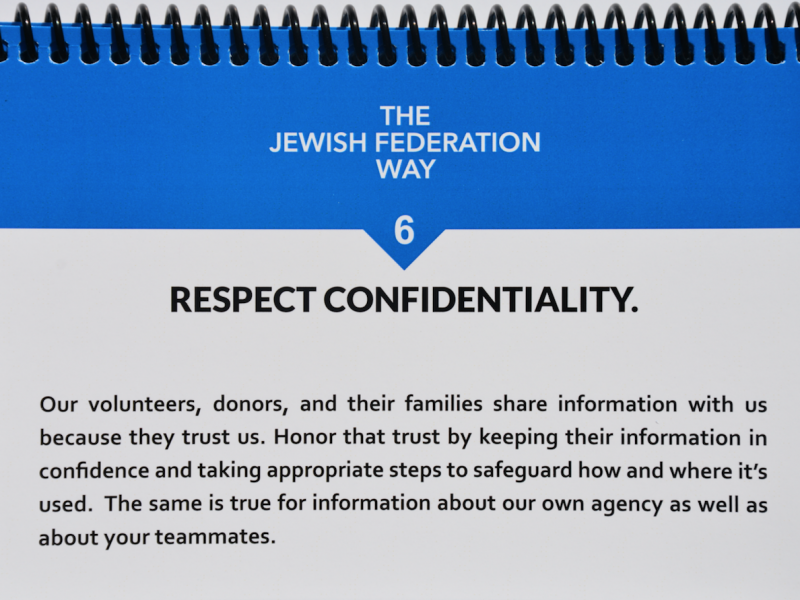Danielle V. Minson — Raising the Bar

Fundamental #6: Respect Confidentiality
Fundamental #6: RESPECT CONFIDENTIALITY. Our volunteers, donors, and their families share information with us because they trust us. Honor that trust by keeping their information in confidence and taking appropriate steps to safeguard how and where it’s used. The same is true for information about our own agency as well as about your teammates.
The recent legal and media fight between the FBI and Apple was front page news around the world. It exploded the debate about the responsibility that we assume when others entrust their confidential information to us. Apple argued that its responsibility to protect the confidentiality of its customers’ data is so total that it trumps helping the FBI to solve a terrorist attack.
The information we (all of us) keep in our databases is just as sensitive in many ways as the information that Apple keeps. We keep information on our supporters’ home addresses, their places of worship, and, of course, about their charitable giving.
And, our situation is not as easy as Apple’s. We can’t “just say no” to the FBI. And our donors entrust us in a more personal way.
But knowing which information is appropriate to share in which situations, is tricky. Sometimes a committed volunteer will ask for information about another volunteer to assist with fund-raising. How can we be sure where to draw the line?
Anytime you have the slightest doubt, I urge you to consult with your supervisor, your teammates, Danielle, Barb, Avi or me. Every case is unique and two heads are better than one.
Here are a few draft guidelines (we want to draft more precise and helpful guidelines and are happy for anyone who’d like to be involved):
> Why is the information being sought? Is it with good intentions? Is it appropriate Federation business or purpose?
> If we had to explain to the donor how we used their information, would it sound reasonable?
> Is this information publicly available? (If so, there is less concern if we share it as well)?
Also, while the primary risk to confidentiality is one of us sharing it beyond what is required and appropriate, there is another risk—we can also risk such confidential information by accident, when we forget to follow the procedures designed to protect confidentiality. What helps me to comply with rules is when I focus on the reason we have these rules—these make all of our work possible.
The world is changing in scary ways—hacking is skyrocketing, making data theft more likely. At the same time, the world is dramatically increasing the level of expected confidentiality, whether we are Apple or the Federation. All these changes means that we need to continually assess and improve in this area. So I am asking you this week, to please use any team meetings to discuss this Fundamental, and in particular, please try to identify areas where we need to do a better job to protect confidentiality. Please share with your department head or with me, where we should improve and any suggestions for that improvement.


